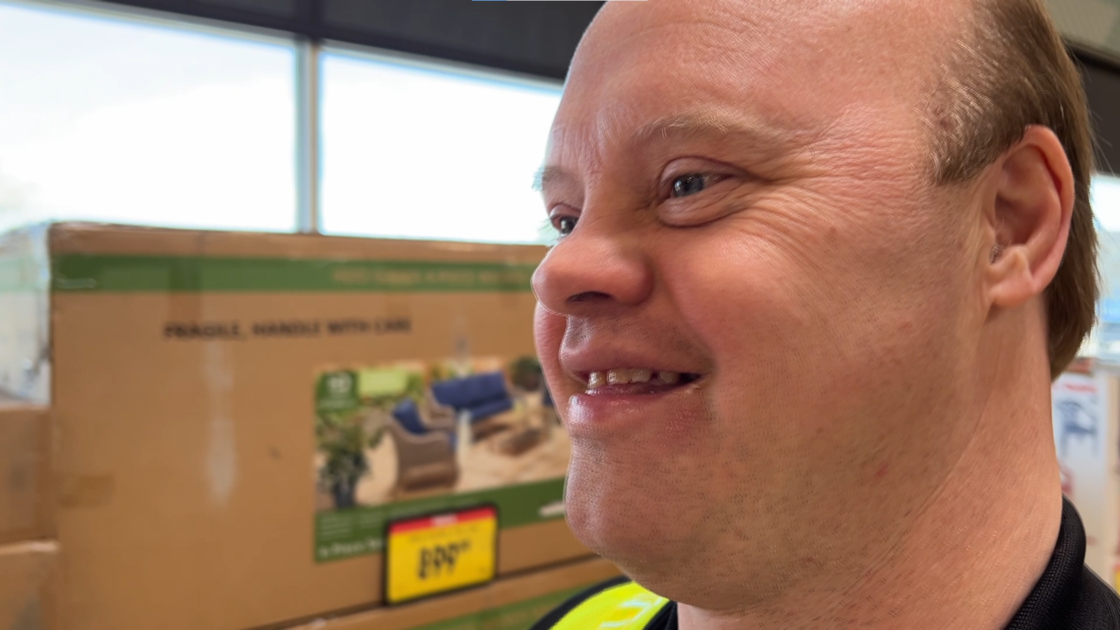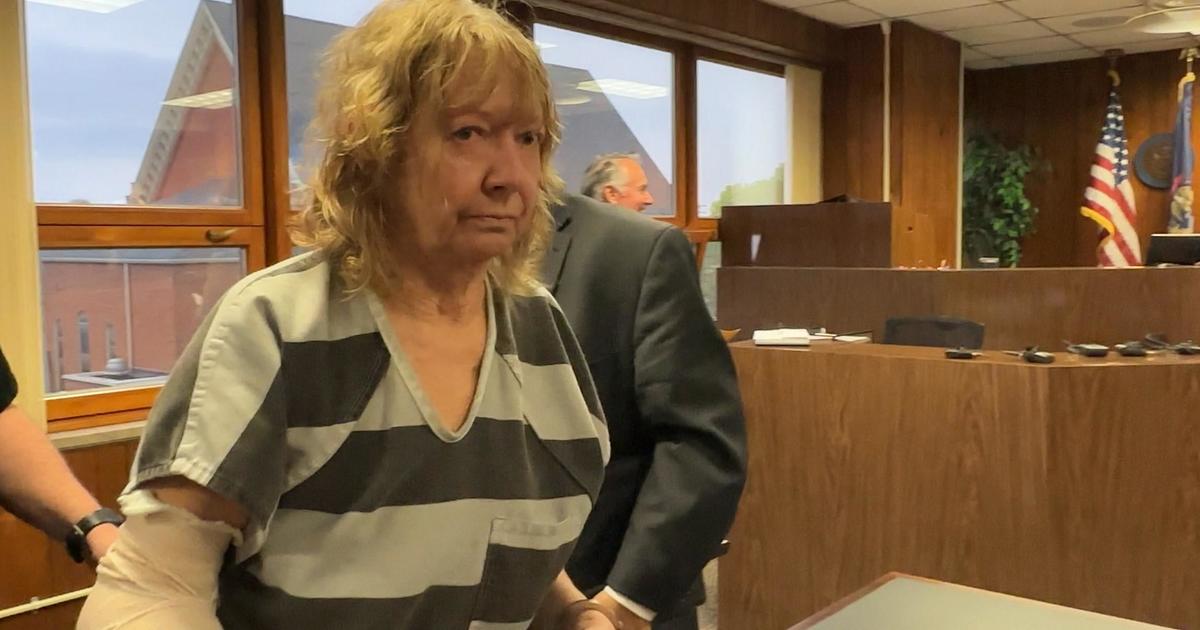UM's Entreprelooza Keynoter: Don't Just Do It For The Money
ANN ARBOR (WWJ) -- Every path is a path to entrepreneurship, and while you can do it to change the world or to enjoy your life's journey or even because you're lost, don't ever do it just for the money.
That was the message Friday from a 20-year entrepreneurial veteran and 1992 University of Michigan business grad at UM's annual Entreprelooza event for students interested in starting their own businesses.
Adam Lilling, with several startups in his past and co-founder of Launchpad LA, told the group that "there are an infinite amount of paths to entrepreneurship. I know that sounds cliché but it is absolutely true ... The road you're on is a road to being an entrepreneur, no matter what it is. You don't have to be born that way. It's not like being an Olympic athlete. You just have to have the desire and the strength to control your own future."
Lilling said he heard from one of his investors along the way about one entrepreneur that graduated from college, started an Internet company with two classmates, and sold it to TV Guide.
That sounds great superficially, but what actually happened was that he started the company with $200,000 from family and friends, had a falling-out with a co-founder, "and now the family of the cofounder are bothering you more or less on a daily basis to get their money back." Then the company raised $1 million from a venture capital firm, staffed up and burned through it too quickly. And that sale to TV Guide? It was for a mere $50,000.
Said Lilling: "One of my investors told me that story and I said, 'God, that's awful,' and he said, 'No, it's great. That guy can go around telling people for the next 20 years that he sold a company to TV Guide. Nobody will ask how much. Terms were not disclosed.'"
Another path to entrepreneurship? Getting out of college and selling fax machines door to door for seven years, save $5,000, learn how to file for a patent yourself, and beg a manufacturer to make your product. That's the true story of Spanx, now a billion dollar company.
Lilling told the students that before they start a company, they need to decide why -- and that there are four whys.
First, he said, is to change the world -- have a lasting effect on humanity. The second is to enjoy the journey -- have a lasting effect on yourself.
Third, he said, is for money. "And if your focus on the why is the money, don't start a company," Lilling said. "It won't get you through the darkest times as a company."
The fourth why, Lilling said, is because "you're lost. This is not a bad thing. You have no idea where you're going or why. So you have to be busy, you have to wander."
Lilling told the crowd how he wangled a seat in the University of Southern California's prestigious film composing school after UM, despite having almost no musical experience. His father told him he'd pay for the school, but if he couldn't get in he'd agree to go to law school. Lilling persuaded the head of the school to let a business major in, and despite the objections of the other students he successfully completed the one-year program.
Lilling stayed in Los Angeles after graduating and went to work for a music label. And then "somebody showed me the internet, and I ran back to the office and said to the boss, 'We have to start selling CDs and tapes on the internet.' And he said, 'Nah, the Internet is going to be gone in six months.'" Nevertheless, Lilling built one of the first online music stores, Pentagon CDs & Tapes. Now he rues that he "didn't think of all the other things I could have been the first to start on the internet ... I started a record store when there were 16 million people on the internet in the whole world."
He eventually sound that business to Virgin. He took the intellectual property of that company and used it to establish an e-commerce service provider, Pazanga. At one point, he said, on paper with stock options he was worth $45 million. Months later, he said, after the dot-com crash, "I was worth negative something. I was lost again."
Lilling said he moved to New York to take care of his family and was supported by his wife for a while, then started another company that took him to 2009. He said at that point, a friend was starting Launchpad LA and wanted Lilling to run it. The pay was zero, but Lilling helped nursemaid 23 startups through Launchpad LA that raised more than $100 million. And he said he wound up getting compensated for the time by joining a big-hit startup's board.
Now he's created a venture fund called Plus Capital that uses "influencers" like celebrities, athletes and music stars as investors.
Lilling said he knows of three kinds of entrepreneurial businesses -- services, that are all about cash flow; companies that raise money and profit; and companies that raise money and scale, getting much bigger quickly.
"The first two are called lifestyle businesses, and they're not bad, they're great," Lilling said. "The third kind of company, scale, can be backed by venture capital. If you're going to say, 'I need a million dollars and then I'll be there,' don't even think of going to a venture capitalist. They want to invest in things that are going to be huge. They don't want profitability. I know that sounds crazy, but the way funds are structured they're not about making cash on cash. They're about taking a million dollars and turning it into a billion dollars."
And most entrepreneurial ventures never see venture capital anyway. Lilling pointed out that of the six million businesses started last year, only 50,000 got angel funding and only 1,200 got early stage venture capital. And there are only 462 VC firms in the country that do $5 million a year in financing or more.
Lilling said the unpleasant reality is that "most people take 20 years to be an overnight success. I have been working my butt off to be an overnight success."
And here, in no particular order, are Lilling's keys to success.
1. Don't model your future after outliers: "It's hard to bet your life on being the longshot. It's great if you are, but you can't bet your whole life on it."
2. "Break eggs -- lots of them. Meaning, I have made a lot of mistakes. I get more credit for my failures than my successes. Don't be afraid to say I messed this up. Never be afraid of that."
3. "It's amazing what you can do when your back is against the wall."
4. "Throw hail marys ever day." In other words, take a flier on calling the CEO of a big company that could be a customer. "Call them. Get meetings. You never know. You can't spend your whole life throwing hail marys, but throw one every day. If only one in 100 works you'll still have three great hail marys a year."
5. "You've got to have the sizzle AND the steak.Don't just work hard with your head down. You gotta go out there and meet people and let them know what you're doing. You can't do one or the other, you've got to do both."
6. "Relationships are key -- and they take energy. Make the effort to keep in touch with people ... You can't do that AFTER people becomes successful and everyone wants to know them, you have to do it before then. Be a good person. Building your network is terribly important and it took me 21 years to figure that out."
7. "Introductions are being commoditized. Finder's fees no longer exist. So pay it forward. Believe me, it comes back."
8. "Work on your weaknesses. Try things you're not good at. And when you can't fix them, find superstars to do them for you and focus on your strengths."
9. "Get comfortable but not cocky in your own skin." Lilling said he's "not real good" at networking with strangers. "It's a muscle, you have to flex it. Just don't get cocky if you're good at it."
10. "Billion dollar ideas are a dime a dozen. If you have this great idea, I guarantee you, 10 other people have it too."
11. "Ideas are worth nothing. Execution is everything."
12. "Compute the time value on your life, not the time value of money. Every year you spend on a startup is time you're not going to be able to spend making money."
13. "Be busy. Somebody in this room asked me should I go to this thing or that thing, and I said: 'Yes.' It's about taking control of your life and directing your journey."
14. "Find balance. You gotta find balance because it'll kill you if you don't."
15. "Be a study of history, don't learn everyone else's mistakes firsthand."
16. "If you think your product or service is very different than your competitor's, you are drinking your own Kool-Aid."
17. "Do what you love." He said UM graduate Dick Costolo, CEO of Twitter, has been quoted as saying, "When you're doing what you love to do you become resilient."
18. "Pay it forward. Karma points do exist. Nine out of 10 people you help will not do anything for you, but then someone comes along and helps you. It does happen, and you can't give up on that."
Entreprelooza continued Friday afternoon with breakout sessions on starting up and growing a business, pathways to entrepreneurship, and getting early stage venture financing.



